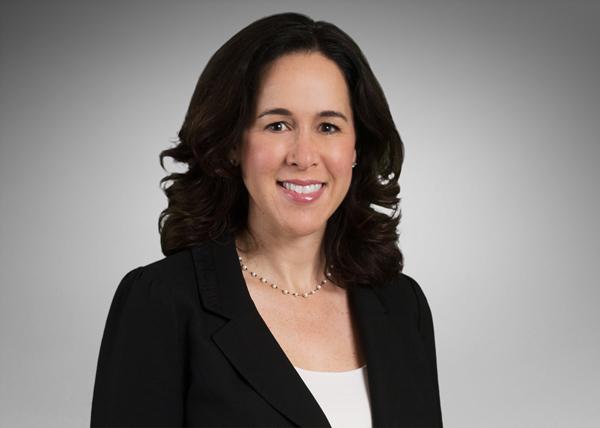On June 13, 2022, the Supreme Court held that current U.S. legislation does not authorize federal courts to order discovery in aid of foreign commercial and investor-state disputes before private arbitral bodies.
In a unanimous opinion delivered by Justice Amy Coney Barrett, the Court concluded that Section 1782 of the U.S. Code, which allows federal district courts to order the production of evidence for use in proceedings before “a foreign or international tribunal,” does not apply to private arbitral tribunals. The Court reasoned that “‘foreign tribunal’ more naturally refers to a tribunal belonging to a foreign nation than to a tribunal that is simply located in a foreign nation,” and absent a state’s intent for a tribunal to be “imbued with governmental authority,” “[o]nly a governmental or intergovernmental adjudicative body constitutes a ‘foreign or international tribunal’.”
While the ruling limits the ability of parties to seek discovery before U.S. courts in aid of certain arbitration proceedings—i.e., private commercial arbitrations and ad hoc investor-state proceedings—it leaves open the question of whether other international arbitration tribunals can be considered “governmental or intergovernmental adjudicative bod[ies].” In any event, Section 1782 remains an important discovery mechanism for parties in foreign proceedings.
Background
Given the role of the United States in global commerce, the availability of American-style discovery from businesses with presence in U.S. jurisdictions is consequential to parties all over the globe. Section 1782 allows parties to seek assistance from a U.S. district court to order persons to testify or produce documents “for use in a proceeding in a foreign or international tribunal” upon the request of a foreign or international tribunal or any person with an interest in the proceeding.[1]
In Intel v. Advanced Micro Devices (2004), the only other Supreme Court decision interpreting Section 1782, the Court found that the statute conferred broad discretion to district courts “to assist in the production of evidence for use in a foreign or international tribunal,” and provided a list of factors for district courts to consider in determining whether to grant requests for Section 1782 discovery assistance. Despite dicta indicating that Section 1782’s terms may cover arbitral tribunals, federal circuit courts of appeal since Intel have split on the issue,[2] with a further twist arising as to whether investor-state tribunals deserve special Section 1782 status due to their treaty basis.[3] In December 2021, the Court granted certiorari in two cases—ZF Automotive v. Luxshare and AlixPartners v. Fund for Protection of Investors’ Rights in Foreign States—and consolidated them for argument.
The Court’s ruling in ZF Automotive resolves the circuit split. ZF Automotive involved a sales fraud dispute between a Hong Kong-based company and a Michigan-based subsidiary of a German corporation. The sales agreement between the parties provided for the resolution of disputes under the Arbitration Rules of the German Institution of Arbitration (“DIS”), a private dispute-resolution organization in Berlin. In preparation for the DIS arbitration, one of the parties filed a Section 1782 application before a federal district court, which granted the request. But the Supreme Court held that, because “[n]o government [was] involved in creating the DIS panel or prescribing its procedures,” it did not qualify as a “foreign or international tribunal” under Section 1782.
The second case, AlixPartners, concerned the added twist of Section 1782’s availability in investor-state arbitrations. The case involved an ad hoc arbitration proceeding initiated by the Fund for Protection of Investors’ Rights in Foreign Corporations (the “Fund”), a Russian corporation, related to an alleged investment in a failed Lithuanian bank that was ultimately nationalized by the Lithuanian government. A bilateral investment treaty between Lithuania and Russia provided parties with several options for resolving “any dispute between one Contracting Party and [an] investor of the other Contracting Party.” The Fund chose to pursue an ad hoc arbitration governed by the UNICTRAL Arbitration Rules, and filed a Section 1782 request for discovery in aid of this arbitration. A federal district court granted this request and the Second Circuit affirmed, concluding that the ad hoc panel was not a private arbitral tribunal and met the statute’s requirement.
The Supreme Court reversed the Second Circuit, reasoning that “neither Lithuania’s presence nor the treaty’s existence is dispositive,” and that “[n]othing in the treaty reflects Russia and Lithuania’s intent that an ad hoc panel exercise governmental authority.” On this basis, the Court ruled that Section 1782 did not apply to the ad hoc investor-state arbitration at issue in the case.
Conclusion
The Court’s opinion decisively closes the door on the ability of parties in arbitration to seek discovery assistance from U.S. courts in disputes governed by privately established tribunals; that is, commercial arbitration proceedings and ad hoc investor-state proceedings. The Court’s ruling begs the question as to whether Section 1782 is available in aid of other international arbitration proceedings before institutions or tribunals deemed to be “imbued with government authority.”[4] The issue thus remains whether arbitration tribunals constituted under the ICSID Convention, for example, fit this criteria for Section 1782 discovery.
This may be an important consideration for parties that have the opportunity to choose the institution in which they pursue their claims and that may benefit from the prospect of discovery against businesses acting in U.S. jurisdictions. In any event, Section 1782 continues to be a viable mechanism for pursuing discovery in aid of other foreign proceedings; in particular, for foreign proceedings concerning the recognition and enforcement of arbitral awards (see, e.g., In re Application of NJSC Naftogaz of Ukraine, Case No. 3-18-MC-92-L-BK (Sept. 30, 2019)).
If you have any questions concerning the material discussed in this client alert, please contact the following members of our International Arbitration practice: Marney Cheek, Nicole Duclos, Miguel López Forastier, David Pinsky, Jeremy Wilson, José Arvelo, and William Lowery.
[2] Compare Nat'l Broad. Co. v. Bear Stearns & Co., 165 F.3d 184, 191 (2d. Cir. 1999) (finding that 1782 did not apply to “an arbitral body established by private parties”) with Abdul Latif Jameel Transp. Co. v. FedEx Corp., 939 F.3d 710, 726 (6th Cir. 2019) (“[T]he text, context, and structure of § 1782(a) provide no reason to doubt that the word 'tribunal' includes private commercial arbitral panels established pursuant to contract and having the authority to issue decisions that bind the parties.”).
[3] See, e.g., In Re Guo, 965 F.3d 96, 108, n.7 (2d Cir. 2020), as amended (July 9, 2020).
[4] Whether the arbitral tribunal handling a dispute is considered a “foreign or international tribunal” remains only one of several factors that district courts must consider in reviewing Section 1782 discovery assistance requests.
Back
Back










